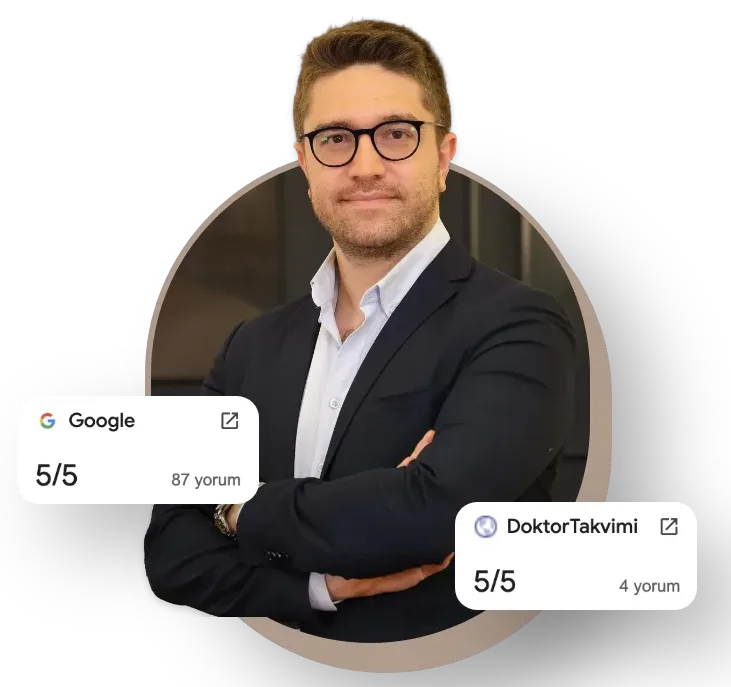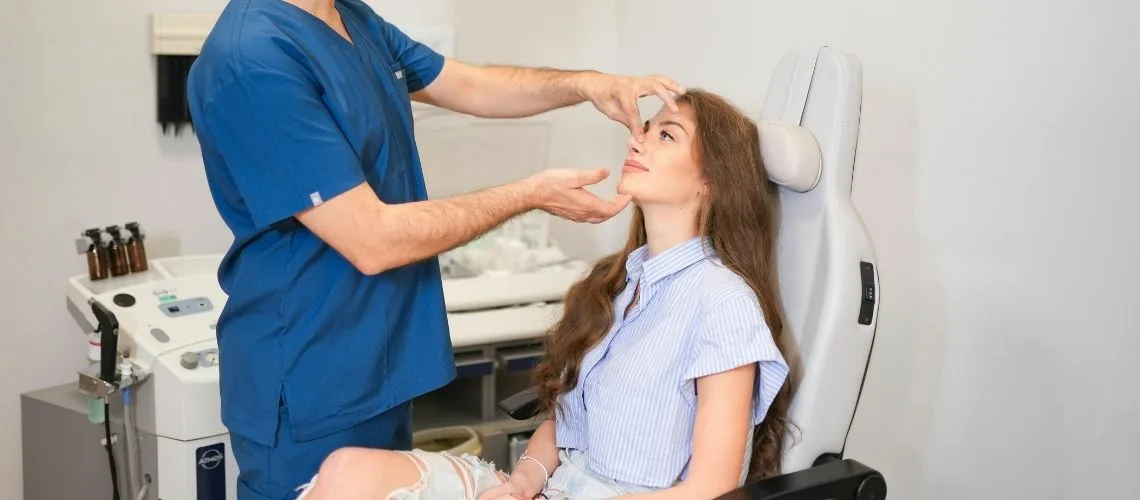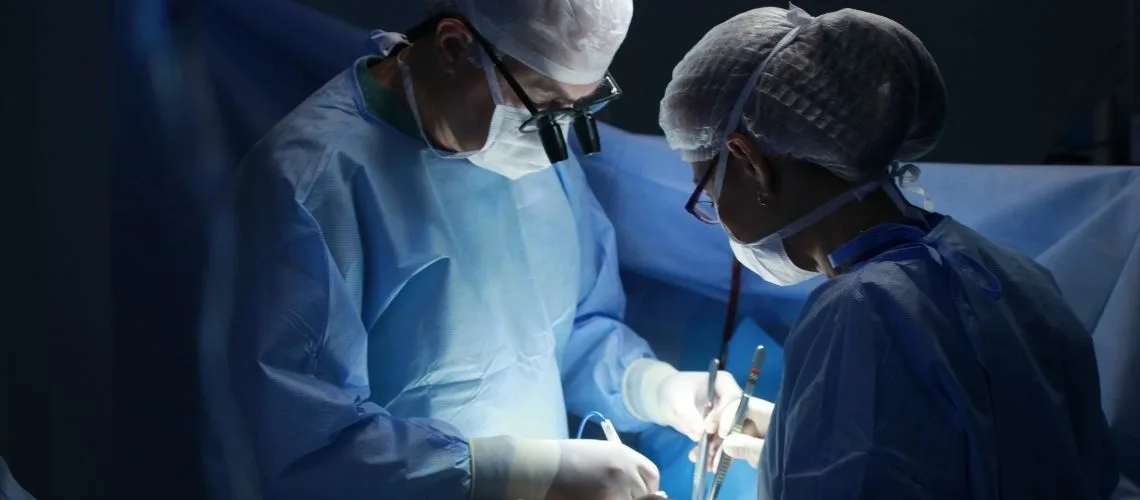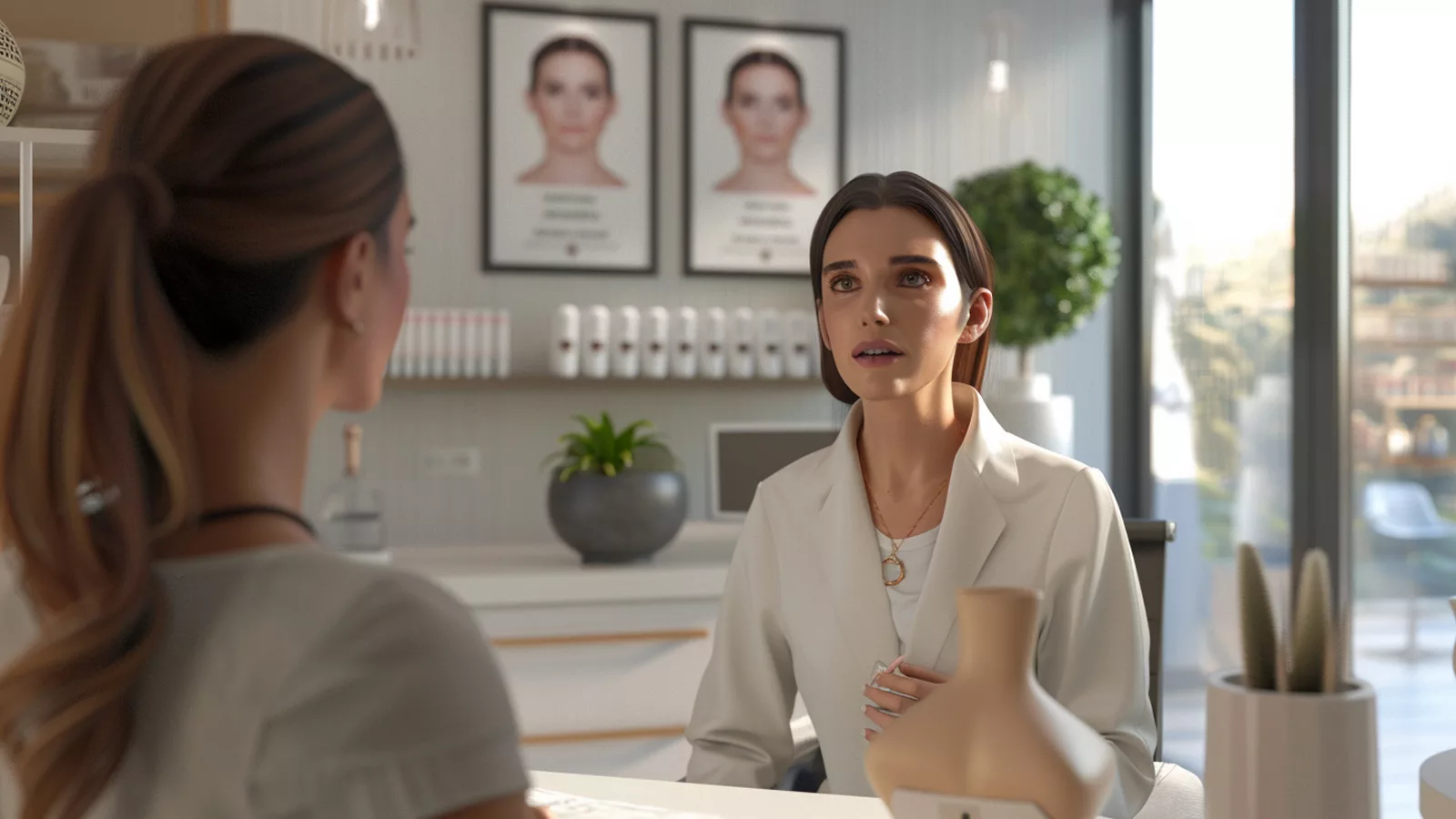Plastic surgery can affect relationships by boosting personal confidence and satisfaction. Patients who feel better about their appearance often engage more positively with partners, friends, and colleagues, enhancing interpersonal dynamics.
Impact of cosmetic surgery on romantic relationships varies. Many couples experience improved intimacy and closeness when one partner undergoes a procedure, though open communication about expectations remains essential.
Plastic surgery outcomes can influence social circles. Positive results often encourage stronger social interactions, while unrealistic expectations or dissatisfaction may lead to tension within personal relationships.
Long-term effects of aesthetic surgery on relationships depend on emotional readiness. Patients who choose procedures for personal reasons, rather than external pressure, report healthier and more fulfilling connections.
How Does Aesthetic Surgery Increase Self-Confidence and Affect Social Interactions?
When we talk about aesthetic surgery, the first thing that often comes to mind is noticeable physical changes that individuals make to their appearance. For example, someone who has had a longstanding dissatisfaction with their nose shape might undergo rhinoplasty (rhinoplasty), or someone unhappy with their breast size might choose breast augmentation or reduction. These visible transformations represent changes the outside world can easily see. Yet there is also a deeper psychological reflection of such surgeries: a boost in self-confidence.
Many studies indicate a significant rise in patients’ self-confidence levels after aesthetic surgery. Clinical observations and self-report surveys show that individuals who avoided social settings because of dissatisfaction with a particular part of their body often become less hesitant after surgery. To give a concrete example, someone unhappy with their nose might start attending social events more frequently after surgery, stop trying to hide their face in photographs, or feel more at ease going to job interviews. That is because a positive change in body image provides considerable relief in the area where the person “feels incomplete.”
It is worth noting, however, that the source of any increase in self-confidence is not merely about looking “prettier” or “more handsome.” A psychological sense of relief also enters the equation. When an individual believes they have resolved the “flaw” that has bothered them for a long time, they experience not just a visible transformation but also a feeling of, “I’m no longer living with that issue I was fixated on.” This sense of personal value can make them more comfortable in social settings, employ more confident body language, and accept positive feedback in interpersonal relationships more easily.
Nonetheless, it would be incorrect to say that aesthetic interventions always yield “miraculous” results. At times, even though individuals with low self-confidence may experience a noticeable uptick in self-esteem after surgery, fundamental internal conflicts may remain unresolved. For example, a person who believes “The physical change I make will solve all my problems” might be disappointed post-surgery if they do not get as much relief as expected. Therefore, the permanence and quality of a confidence boost depend on the person’s mental state prior to surgery, the support they receive from their environment, and how realistic their expectations are.
Looking at social interactions, it can be said that aesthetic surgery usually contributes positively. As a person’s self-confidence increases, they can communicate more openly, feel less shy about meeting new people, and take on a more active role in group activities. This is closely related to reduced social anxiety. Over time, as the individual receives more positive social feedback, their sense of self-improvement is reinforced, leading to a kind of “self-fulfilling prophecy”: “I’m confident, so I behave more comfortably, people respond positively to me, and, in turn, I gain even more confidence from their approach.”
Can Cosmetic Procedures Help Avoid Negative Social Interactions?
Negative social interactions often stem from the anxieties a person feels about their physical appearance. When someone sees themselves as “flawed,” they can develop heightened sensitivity to any criticism from others. Over time, this sensitivity may lead them to withdraw socially, isolate themselves to preempt possible negative remarks, or become overly defensive.
Some research suggests that people who have experienced long-term dissatisfaction with their bodies are more prone to symptoms of depression and anxiety, thus becoming more fragile and vulnerable in social relationships. Fear of ridicule about one’s nose, shame about breast size, or childhood bullying experiences due to prominent ears can all shape a person’s social behaviors well into adulthood. A person with such concerns may find that a cosmetic procedure, which eases their anxiety over their physical appearance, also reduces their tendency to avoid negative social interactions.
For instance, someone who thinks that after rhinoplasty (rhinoplasty) their nose will no longer “stand out” may have previously felt compelled to position themselves in photos so as to hide their nose, or turn their face away to conceal their profile. Post-surgery, such behaviors might decline or disappear completely. Consequently, the person may feel more comfortable and secure in social settings, believing they have shielded themselves from possible negative remarks.
Yet it must be emphasized that aesthetic surgery is not a “magical” solution that completely eliminates negative social interactions. If a person’s core issues with their self-perception or if social prejudices persist, new concerns or targets for dissatisfaction might arise. For example, someone who has corrected their nose might shift their focus to skin quality and start worrying, “Now my skin looks bad.” Breaking this cycle requires proper psychological evaluation and clarity of motives prior to the surgery.
Additionally, remember that societal stigmas sometimes play a role. Though many countries have become accustomed to cosmetic procedures, certain communities still regard them as “breaking naturalness” or “an unnecessary expense.” Therefore, surgery can alleviate one set of physical worries while introducing new kinds of judgmental comments from one’s social environment, potentially causing new stress. Thus, completely avoiding negative social interactions involves not just the surgery itself but also the attitudes of one’s community and the individual’s emotional readiness—making it a multi-dimensional issue.
What Impact Can Cosmetic Surgery Have on Marital Satisfaction?
Marital satisfaction is a complex process built on factors such as mutual love, respect, support, and loyalty. Although aesthetic surgery alone does not shape this process, it can significantly influence the emotional balance and communication within a marriage. Especially if a person has a long-standing physical concern that affects their emotional state within the marriage, post-surgery relief can have a positive impact on marital satisfaction.
For instance, if a woman undergoes breast augmentation and subsequently feels more confident and content, this sense of well-being may reflect positively in her relationship with her spouse. Feeling more desirable or attractive in a sexual sense can lead to increased openness and spontaneity in intimacy. This dynamic can enhance the quality of the couple’s shared experiences. Decreased everyday tension may also amplify the enjoyment of activities they do together.
However, in some cases, spouses may hold differing expectations about the surgery. If they fail to communicate well beforehand, or one spouse views the procedure as unnecessary or dangerous, conflicts may arise. Surgeries that place a financial burden or are perceived as risky can spark disagreements over family finances or health concerns. Moreover, if there are unanticipated complications after surgery or a lengthy recovery period, the patience of both partners may be strained, negatively affecting marital satisfaction.
In the literature, some studies note increased marital satisfaction after the procedure, while others show no marked difference. A small subset of studies even report a slight decline in marital satisfaction following surgery. These conflicting results may relate to how couples prepare for surgery, the extent to which the desire for surgery stems from internal (personal) or external (social) factors, and how realistic a person’s own physical ideals are.
How Do Psychological Factors Like Self-Confidence Influence the Decision to Have Cosmetic Surgery?
The decision to undergo aesthetic surgery does not merely involve an external transformation; it also reflects deeper emotional and psychological motivations. Some individuals seek surgical intervention to bolster their self-esteem or to fit into a certain social norm. Self-confidence plays a critical role in this process. A person who believes they can “fix” a part of their body that bothers them, hoping to feel better as a result, often comes to that decision after a prolonged period of self-reflection.
In body image literature, the concepts of “body image value” and “body image dissatisfaction” are highly significant. If a person places great importance on social or cultural beauty norms and deems their body inadequate by those standards, they are more likely to turn to aesthetic surgery. For example, someone who constantly consumes media content praising slender body types and deems themselves overweight might show a natural inclination toward liposuction or a tummy tuck.
On the other hand, low self-esteem can be a profound emotional issue that one surgery cannot resolve in and of itself. Some individuals’ self-esteem troubles are rooted in negative life events, childhood traumas, or personality traits. In these situations, while aesthetic surgery may improve one’s body image, it may not produce a deep internal transformation. In fact, there is a chance the individual might think afterward, “I still don’t feel good about myself; maybe I should have more procedures.” This attitude may lead to what is sometimes called “cosmetic surgery addiction” or repeated operations.
Clinical observations stress the importance of a healthy psychological evaluation prior to surgery. A practitioner should determine why a patient feels they need the procedure, what they hope to achieve, their current mental state, and any past traumas. In cases of body dysmorphic disorder (BDD) or severe depression, cosmetic interventions may fail to produce the desired result and can, instead, cause additional disappointment or greater psychological problems. Hence, the underpinnings of a person’s self-confidence are among the most decisive factors in the choice to undergo surgery.
What Role Do Sociocultural Factors Play in Cosmetic Surgery Trends?
When looking at where aesthetic surgery is common or popular around the world, stark regional differences emerge. On the one hand, Western countries have long embraced face-lifts, breast augmentations, or Botox; on the other hand, in South Korea, chin reduction or double-eyelid surgeries are extremely popular. These variations largely stem from sociocultural factors.
Societal standards of beauty, fashion currents, and celebrity influences rank among the most crucial factors dictating cosmetic trends. For instance, in South Korea, the notion of a more “Western-looking” eye structure has prompted widespread demand for double-eyelid surgery. In Latin America, interest in fuller hips or a narrower waist boosts demand for buttock aesthetic procedures. In the U.S., breast enlargement has been among the most popular operations for years, while in Middle Eastern countries, nasal surgeries take center stage because nasal structures there often feature thicker cartilage and a more pronounced bridge.
Societal and cultural norms come into play here. In some cultures, aesthetic procedures are not warmly welcomed or are avoided for religious or moral reasons. In contrast, in regions where social media and “influencer culture” have rapidly expanded, plastic surgeries become nearly “normalized,” especially among younger demographics, with demand increasing significantly. On platforms like Instagram or TikTok, filters create “perfect” facial features or body proportions, leading people to internalize unrealistic beauty standards.
In addition, economic considerations cannot be overlooked. Some procedures, seen as markers of wealth, may be more frequent among those with substantial financial resources. For example, expensive surgical procedures in luxury clinics can become symbols of status, while in economically disadvantaged areas, the quality of surgical interventions may vary, or patients may lean toward less costly procedures.
How Do Cultural Attitudes Toward Beauty Shape Cosmetic Surgery Choices?
Cultural attitudes powerfully influence a society’s concept of beauty—what physical traits are highlighted or deemed insignificant. Traditions, religious beliefs, communal ceremonies, and symbols passed down generations strengthen these attitudes, eventually shaping a specific aesthetic perception. Hence, cosmetic surgery preferences reflect that view.
For example, in some East Asian societies, a small and slim face is an ideal, fueling a high incidence of jaw contouring or facial slimming procedures. In the Middle East, a straight or refined nose is considered aesthetic; in Western societies, fuller lips can, at times, take precedence. In Latin America, an hourglass figure is deemed attractive, leading to increased popularity of liposuction, tummy tucks, and buttock shaping procedures.
Culture also affects the preference between subtle, more natural-looking changes or conspicuous transformations. In some cultures, a “you can’t tell there was surgery” appearance is desired, while in others, a noticeable change can enhance social standing or conform more closely to beauty ideals. These preferences are shaped not only by personal taste but also by the culturally constructed concept of “beauty.”
Moreover, culture influences how aesthetic surgery is perceived socially. In some places, it’s viewed as “meddling with one’s natural body” and disapproved of; patients might keep the procedure hidden or avoid talking about it publicly. In other cultures, such operations are seen as self-care and a way to elevate one’s self-esteem, so they’re generally accepted. Consequently, culture dictates not only which procedures are more common but also how individuals reintegrate socially after surgery.
Are There Cultural Differences in How Relationships Are Perceived After Surgery?
Cultural disparities affect not only the decision to undergo surgery but also postoperative relationships. Culture shapes everything from how people express emotion to how they seek support, potentially bolstering or weakening social bonds during recovery.
For instance, in more collectivist cultures, family and close friends typically provide significant backing after surgery. Relatives may offer support by frequently visiting, preparing meals, or assisting with daily tasks, allowing the patient to feel more secure and cared for. This sense of emotional well-being can amplify the psychological benefits of surgery.
In more individualistic cultures, the post-surgery phase might be viewed as a more “private” or “personal” process. Out of respect for privacy, acquaintances may be less hands-on in aiding recovery, which can leave some patients feeling isolated—“No one is really helping me.” Of course, individuals can behave in ways that diverge from their cultural norms, but these are the observed general tendencies.
Can a Strengthened Body Image Improve Close Relationships?
Relationships are tied not only to mutual emotional sharing and harmony but also to how individuals feel about themselves. When someone dislikes their appearance or feels inadequate, they might become “shy” or “overly sensitive,” which can manifest in romantic relationships or close friendships. For example, a person self-conscious about their physical appearance may have difficulty with physical intimacy in a partnership, as shame can stand in the way of desire or satisfaction.
It is known that aesthetic surgery can mitigate such barriers by improving body image. For instance, someone who undergoes a tummy tuck or liposuction, thereby reducing worries about their waist or abdomen, may feel more at ease in intimate situations and draw closer to a partner. Similarly, a woman discontented with her breasts might find that, after surgery, she feels more appealing and behaves more freely with her spouse or partner.
An enhanced body image can foster not only improved sexual closeness but also better emotional communication. If someone no longer feels “insufficient” or embarrassed by their looks, they can speak more openly and sincerely with their partner. A parallel process can occur in friendships: A person who once felt overshadowed by their appearance, or hid at the back of group photos, might become more eager to join social gatherings after surgery. Spending more lively, cheerful time with friends can deepen those bonds.
Of course, every relationship dynamic is unique. Bolstering body image does not magically eliminate all relational issues. For instance, if a couple faces communication problems, financial hardships, infidelity, or trust issues, a surgery and a newfound sense of self-esteem may not suffice to save the relationship. Still, the added self-confidence from an improved body image can provide an individual extra motivation for tackling ongoing problems.
Do Media Exposure and Peer Influence Trigger Cosmetic Surgery Decisions?
Media exposure—particularly social media—has a massive impact on today’s aesthetic surgery trends. Celebrities or social media influencers with “perfect” faces and figures can instill thoughts like “I should look like that, too” in many people. Filters and photo-editing programs blur the lines of reality, removing skin imperfections, reshaping noses, or plumping lips at the click of a button. Constant exposure to these idealized images can prompt people to judge their own bodies harshly.
Peer influence also plays a major part. Within a circle of close friends, if one person undergoes breast enhancement and continually expresses how pleased they are, others may be emboldened to do the same. If this creates a “group norm,” it becomes easier for aesthetic procedures to spread. In some friend groups, plastic surgery becomes as ordinary as visiting the dentist for teeth whitening. Younger individuals are especially susceptible, since adolescence and early adulthood are times of identity formation and high social acceptance needs.
Moreover, advertisements often present flawless smiles, spotless skin, or balanced body proportions with the message “You can have this, too.” This message may accelerate a turn toward cosmetic surgery among those with low self-esteem or discomfort about their bodies. Research suggests that frequent exposure to images or videos of aesthetic procedures on social media can prompt individuals to perceive new “defects” in themselves that they feel need correcting.
How Does Aesthetic Surgery Affect Family Dynamics and Friendships?
Family and friendships are among the most important sources of social support in a person’s life, and a decision to have aesthetic surgery can affect these bonds in various ways. For instance, someone eager to undergo surgery may seek approval or backing from loved ones, encountering different reactions:
- Some family members may support the decision, believing it will contribute to the person’s happiness.
- Others might question the need: “You’re already beautiful/handsome. Why change?”
- Financial concerns or fears about medical risks can also become matters of debate.
Once the person emerges from surgery with a brand-new look, reactions from the environment also vary. Sometimes, friends celebrate the transformation and reinforce the individual’s rising confidence with positive feedback. At other times, jealousy or criticism might step in—for example, “You’re just following everyone else and losing your natural look,” or “You had surgery but still aren’t happy.”
If the patient has openly communicated about the surgery with family or friends—sharing feelings, explaining motives, and discussing the process—receiving support becomes more likely. Family members or close friends can assist with post-surgery care, thus strengthening these relationships. Conversely, hiding the decision to have surgery or ignoring relatives’ opinions might lead to temporary or permanent resentments.
The same patterns apply to friendships. In some cases, surgery becomes a shared interest or conversation topic that can deepen friendships. The patient might share their experience and guide friends who are curious. But sometimes, a visible physical change disrupts group dynamics. Comments like “Now you’re so glamorous and pay less attention to us” or “You used to be more genuine” could upset the individual.
What Are the Long-Term Effects of Cosmetic Surgery on Relationship Stability?
When referring to the “stability” of a relationship, we typically mean the sense of emotional continuity, commitment, and satisfaction over time. In the short term, it is true that cosmetic surgery can grant individuals a boost in self-confidence, excitement, and renewed energy. However, how this evolves in the long run depends on many factors.
Primarily, does the surgery bring lasting improvement to a person’s satisfaction with their body, or do underlying self-perception issues simply transfer to a different concern? This is one of the key questions for how aesthetic surgery might affect relationship stability. Some individuals experience a positive self-image for a long time following surgery, helping them handle relationship conflicts more calmly. With higher self-confidence, they can express their needs more readily and gain a better understanding of their partner’s desires. Feeling equal in the partnership may enhance empathy and sharing.
Conversely, some individuals develop ongoing desires for more procedures or harbor disappointment if their expectations remain unmet. A temporary confidence boost could fade, replaced by renewed dissatisfaction. For instance, someone who has had breast surgery might say, “They’re not big enough; maybe I could enlarge them further,” or someone who’s just had their nose done might complain right away, “The tip isn’t as lifted as I wanted.” This never-ending dissatisfaction can cause friction in the relationship, exhausting their partner over time.
Moreover, relationship stability hinges not only on bodily change but also on the overall investment in the relationship and on how couples address daily challenges. Cosmetic surgery is not a standalone “relationship repair” method, nor can it eliminate all difficulties in a partnership. Still, if bodily satisfaction improves, especially if sexual life and mood also improve, it can serve as a supportive element for the relationship over the long term.
How Do Partners Perceive Postoperative Changes in Appearance?
Partners’ reactions to post-surgery changes strongly influence the dynamics of a relationship. For some, it is quite gratifying to see a loved one undergo a procedure due to aesthetic concerns and then emerge looking happier and more self-assured. Such partners assume a supportive role before and after surgery, assist with the healing process, and offer positive remarks about the outcome. This approach allows the person who had surgery to feel better about themselves and can strengthen the couple’s bond.
For others, the concept of surgery may be difficult to grasp. Expressions like “I love you as you are; why do you want to change?” reveal confusion or belief that it is unnecessary. In some instances, a partner might regard the patient’s post-surgery surge in confidence as a threat, worrying, “Now they’ll get more attention and might stop liking me.” Such concerns could spark jealousy or distrust in the relationship, potentially generating a new area of conflict.
Furthermore, social prejudices about aesthetic surgery can shape the partner’s perception. While some see it as “unfair to what’s natural,” others adopt a more liberal view: “It’s your body and your health, you decide.” These differing viewpoints directly affect the couple’s communication post-surgery. Supportive and understanding attitudes can create a positive surgical experience, whereas critical or mocking stances may lead the individual to regret their decision or feel upset.
In addition, if the individual’s appearance changes dramatically—particularly with prominent facial modifications—the partner may feel as though they are suddenly with a “new” person. Someone whose face looks noticeably different, for example, might alter how they express emotion or appear in photographs. Some partners may adore the fresh look, while others struggle to adapt. This adjustment process can be emotionally tumultuous for both parties, but if the relationship is rooted in strong communication, the new appearance will gradually become familiar and cease to be an issue.
Is There a Link Between Financial Satisfaction and Cosmetic Surgery Outcomes?
Aesthetic surgery is typically high cost, and having the financial means to cover these costs can significantly shape how the process unfolds. Being able to afford top-quality clinics, consult experienced surgeons, or avoid financial worries during recovery may lead to better results. For instance, someone who is economically comfortable can invest in all the surgical details, possibly pay for additional treatments or check-ups, thereby enhancing both the operation’s success and their post-surgery satisfaction.
On the other hand, pursuing aesthetic surgery despite limited financial resources can create difficulties in someone’s life. Monetary pressures, going into debt, or resorting to cheap yet poor-quality centers present risks. This naturally raises the chances of complications or subpar work. The ensuing revision procedures may add further expenses, creating additional strain on an already tight budget. When financial satisfaction is low, stress may overshadow one’s contentment with the operation.
However, it would be misleading to claim a direct “financial satisfaction = surgery satisfaction” equation. Indeed, outcome satisfaction depends largely on a person’s preoperative expectations and psychological readiness. Even if someone spends a great deal at a high-end facility, if their expectations are unrealistic, they may remain dissatisfied regardless of the procedure’s quality. Conversely, someone on a moderate budget but with realistic hopes might be delighted with the result.
Financial satisfaction also connects to relationships. If a family or couple’s shared income covers the aesthetic surgery, internal conflicts may arise. A partner might complain, “We had to cancel our vacation because of this procedure,” causing guilt or remorse in the person who had surgery. Conversely, if a procedure is jointly planned and does not impose financial strain, it can allow the patient to remain psychologically at ease while also preserving harmony with their partner.

Op. Dr. Erman Ak is an internationally experienced specialist known for facial, breast, and body contouring surgeries in the field of aesthetic surgery. With his natural result–oriented surgical philosophy, modern techniques, and artistic vision, he is among the leading names in aesthetic surgery in Türkiye. A graduate of Hacettepe University Faculty of Medicine, Dr. Ak completed his residency at the Istanbul University Çapa Faculty of Medicine, Department of Plastic, Reconstructive and Aesthetic Surgery.
During his training, he received advanced microsurgery education from Prof. Dr. Fu Chan Wei at the Taiwan Chang Gung Memorial Hospital and was awarded the European Aesthetic Plastic Surgery Qualification by the European Board of Plastic Surgery (EBOPRAS). He also conducted advanced studies on facial and breast aesthetics as an ISAPS fellow at the Villa Bella Clinic (Italy) with Prof. Dr. Giovanni and Chiara Botti.
Op. Dr. Erman Ak approaches aesthetic surgery as a personalized art, tailoring each patient’s treatment according to facial proportions, skin structure, and natural aesthetic harmony. His expertise includes deep-plane face and neck lift, lip lift, buccal fat removal (bichectomy), breast augmentation and lifting, abdominoplasty, liposuction, BBL, and mommy makeover. He currently provides safe, natural, and holistic aesthetic treatments using modern techniques in his private clinic in Istanbul.









